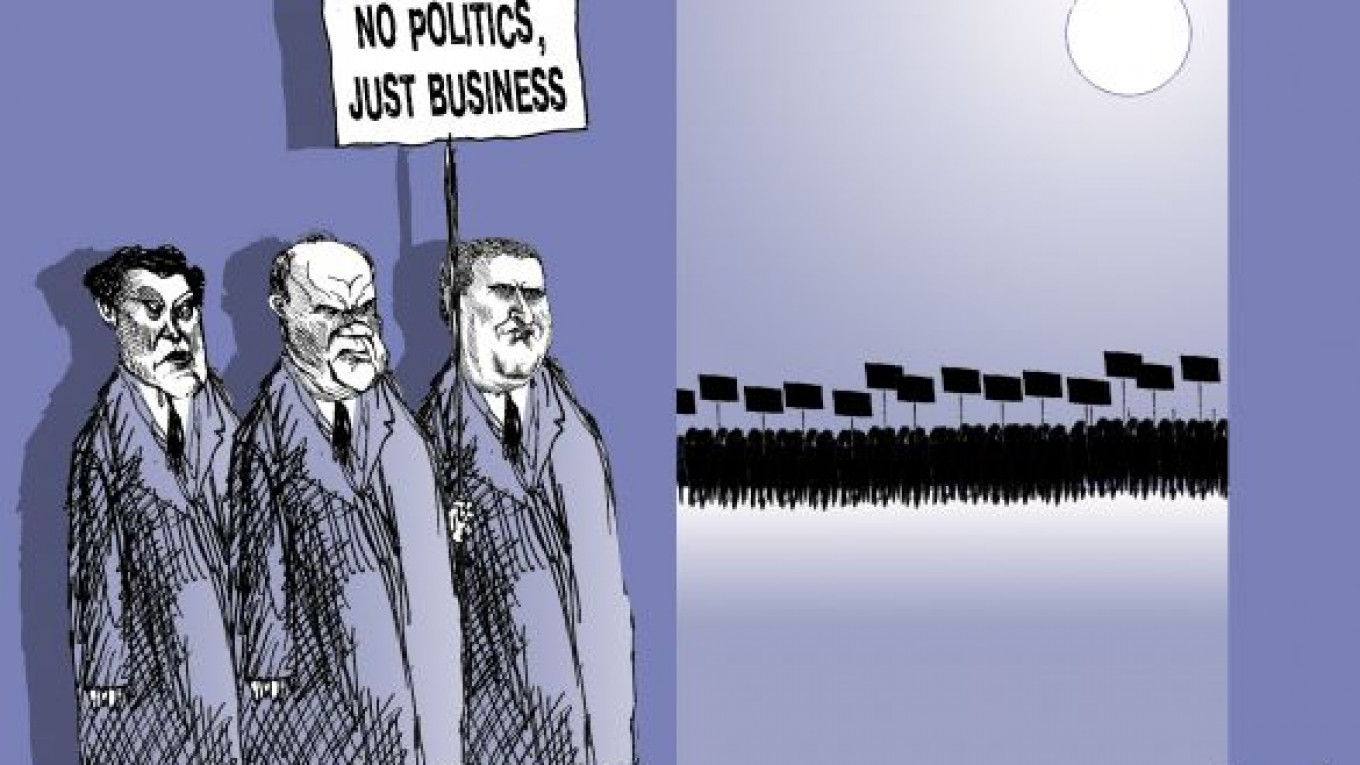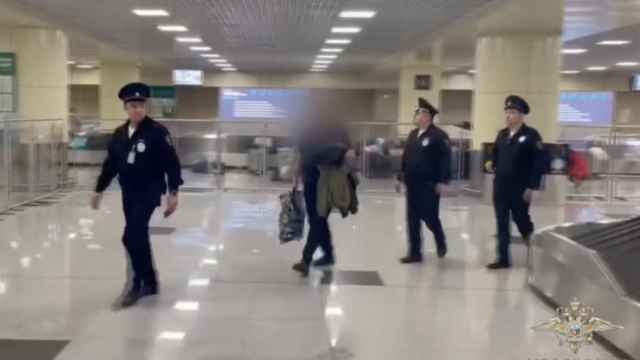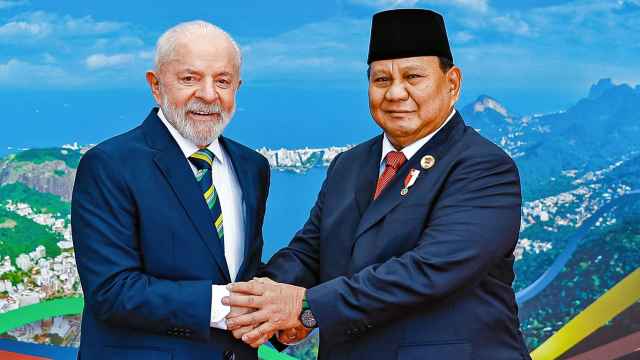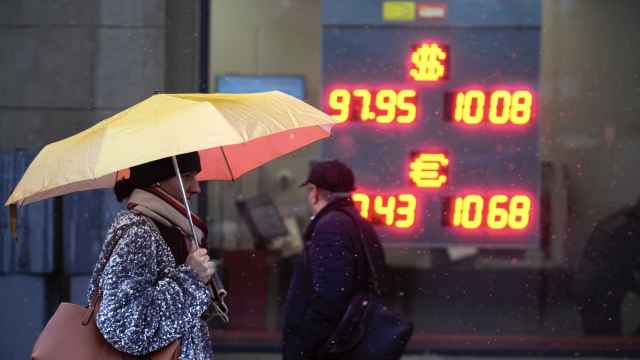The most important event related to the State Duma elections Sunday was the rally protesting election fraud held near Moscow's Chistiye Prudy metro station Monday evening. More than 5,000 people attended that demonstration — an impressive though not unprecedented number for Russia. Recall that more than 5,000 people also turned out for the nationalist rally on Manezh Square one year ago.
Monday's demonstration was formally organized by the Solidarity democracy movement that was never able to muster more than a few hundred people for its protests. But thousands of people turned out on Monday to protest the elections. Many of them were fairly prosperous, white-collar Muscovites who, until only recently, were considered the beneficiaries of Prime Minister Vladimir Putin's regime and its so-called stability.
Nevertheless, the protest took place. In fact, many people not only responded to the call to rally at Chistiye Prudy, but also took part in the peaceful march to the Central Elections Commission building. Using Facebook, Twitter and LiveJournal as the primary means of communication, it took only a few hours to gather all 5,000 people. This is just one more proof that the Internet is fully capable of changing the world by mobilizing thousands of people.
But the three Kremlin-approved "opposition" parties that won seats in the new Duma — the Communist Party, A Just Russia and the Liberal Democratic Party — practically ignored the large-scale protests. This only demonstrated that the gap between the political elite and the active, creative minority in society is rapidly widening.
All four parties that won seats in the Duma elections have a reason to be satisfied. All things considered, United Russia should be content that it retained a simple parliamentary majority, which still enables it to pass all of the laws required by the Kremlin and the government without negotiating or even consulting with others.
The announcement by United Russia leaders and lame duck President Dmitry Medvedev to form a parliamentary coalition with the other three parties isn't worth much. In fact, the party of power has no need whatsoever for a coalition. True, the 238 seats that United Russia will hold in this Duma are significantly fewer than the 315 it held in the last one, but because party discipline is firmly based on each deputy's financial and political interests, the rubber-stamping of legislation will surely continue without a hitch.
The Communist Party, A Just Russia and the Liberal Democratic Party, too, are overjoyed to have a greater presence in the lower house of parliament — although they obtained little real power or leverage as a result. But they didn't want any either. Their primary function is to maintain their given niche and role in the political system dominated by the Kremlin. For these parties, politics has for many years already become a business in which the votes that they garner are "rented out" to the ruling party on mutually beneficial terms.
All four Duma parties consider the elections and their results to be legitimate, in direct contrast to the position taken by the real opposition forces. The rally at Chistiye Prudy was the first but probably not the last act of protest against elections marred by enormous fraud.
If the Kremlin-approved opposition parties really sought power and wanted to take responsibility for the country, they would team up to put forward a single candidate for the presidential election in March. The ideal candidate would be someone completely unlike Putin. For example, Oksana Dmitriyeva, the charismatic and honest deputy head of A Just Russia, would be perfect. Unfortunately, there will be no single candidate. Although voters are fed up with the old presidential candidates Gennady Zyuganov, Vladimir Zhirinovsky and Grigory Yavlinsky all three will probably run again for president to help legitimize Putin's certain victory. Even if, in the worse-case scenario, Putin only receives 55 percent of the vote instead of 70 percent, he will still sit comfortably in the Kremlin.
If the three minority parties were serious about their futures, they would pass the helm to younger leaders. For example, Zhirinovsky, the 65-year-old patriarch of Russian nationalism, could transfer the top party post to 35-year-old Alexei Navalny, one of the main organizers of Monday's demonstration and a nationalist in his own right. The Communist Party and A Just Russia could unite to form a new social-democratic organization with fresh leaders such as Dmitriyeva.
But that is utopian thinking. The old guard leading the three minority Duma parties will continue to protect their business interests and will not allow more liberal, progressive leaders within their parties to upset this balance.
That is why the only way to change the deeply ingrained status quo is to create a new opposition force that is more social-democratic in its focus and more appealing to a broader opposition constituency than Parnas and other liberal groups. This would require creating a new party — one that could be formed by the people who gathered at Chistiye Prudy. And I am certain that, with the help of Internet-based social networks, it would be possible to gather the signatures of 150,000 to 200,000 members of that party within six months' time.
The Kremlin would do everything in its power to block such a project, but it seems there is no viable alternative.
Stanislav Belkovsky is a political analyst and director of the Moscow-based National Strategy Institute.
A Message from The Moscow Times:
Dear readers,
We are facing unprecedented challenges. Russia's Prosecutor General's Office has designated The Moscow Times as an "undesirable" organization, criminalizing our work and putting our staff at risk of prosecution. This follows our earlier unjust labeling as a "foreign agent."
These actions are direct attempts to silence independent journalism in Russia. The authorities claim our work "discredits the decisions of the Russian leadership." We see things differently: we strive to provide accurate, unbiased reporting on Russia.
We, the journalists of The Moscow Times, refuse to be silenced. But to continue our work, we need your help.
Your support, no matter how small, makes a world of difference. If you can, please support us monthly starting from just $2. It's quick to set up, and every contribution makes a significant impact.
By supporting The Moscow Times, you're defending open, independent journalism in the face of repression. Thank you for standing with us.
Remind me later.






